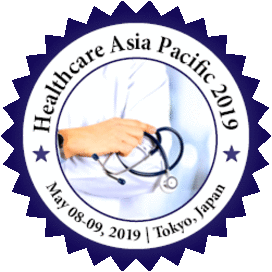
Sandrine Andriantsimietry
United Nations Development Programme, Madagascar
Title: Setting up model hospitals in non-incineration of healthcare waste management in Madagascar
Biography
Biography: Sandrine Andriantsimietry
Abstract
Statement of the Problem: Incineration of health care waste, frequently through open burning is the most common practice of treatment and elimination of health care waste across the country. Autoclave is a best available technology for non-incineration of health care waste that permits recycling of treated waste and prevents harm in environment through the reduction of unintended persistent organic pollutants from the health sector. Madagascar, in 2018, set up the first best available technology, autoclave, to treat the health care waste in public hospitals according the best environmental practices in health care waste management.
Method: A Global Environment Funded project supported the introduction of the non-incineration treatment of health care waste to help countries in Africa to move towards Stockholm convention objectives in the health sector. Two teaching hospitals in Antananarivo and one district hospital in Manjakandriana were equipped, respectively with 1300 L, 250 L and 80 L autoclaves. The capacity of these model hospitals was strengthened by the donation of equipment and materials and the training of the health workers in best environmental practices in health care waste management. Best environmental practices including particularly segregation of infectious and domestic waste and recyclable vs. non-recyclable waste, non-incineration treatment and recycling of health care waste autoclaved that are recyclable are innovative in the country.
Findings: Over four months of autoclaving the health care waste in two teaching hospitals, 7.1 tons per year of health care waste was treated and 9.4 g toxic equivalent per year of Unintended Persistent Organic Pollutants (UPOPs) are avoided by autoclaving the health care waste. Currently, 60% of (2018 /3364 kg) plastics are recycled. Proper segregation of waste in the wards to collect the infectious waste that was treated in the autoclave was the main step guaranteeing a cost-efficient, nonincineration of health care waste.
Conclusion: Public hospitals in low income countries can be model in best environmental practices in health care waste management but efforts must be made internally for sustainment. Improving the health care waste management contributes in prevention and control of infection within the hospitals.

